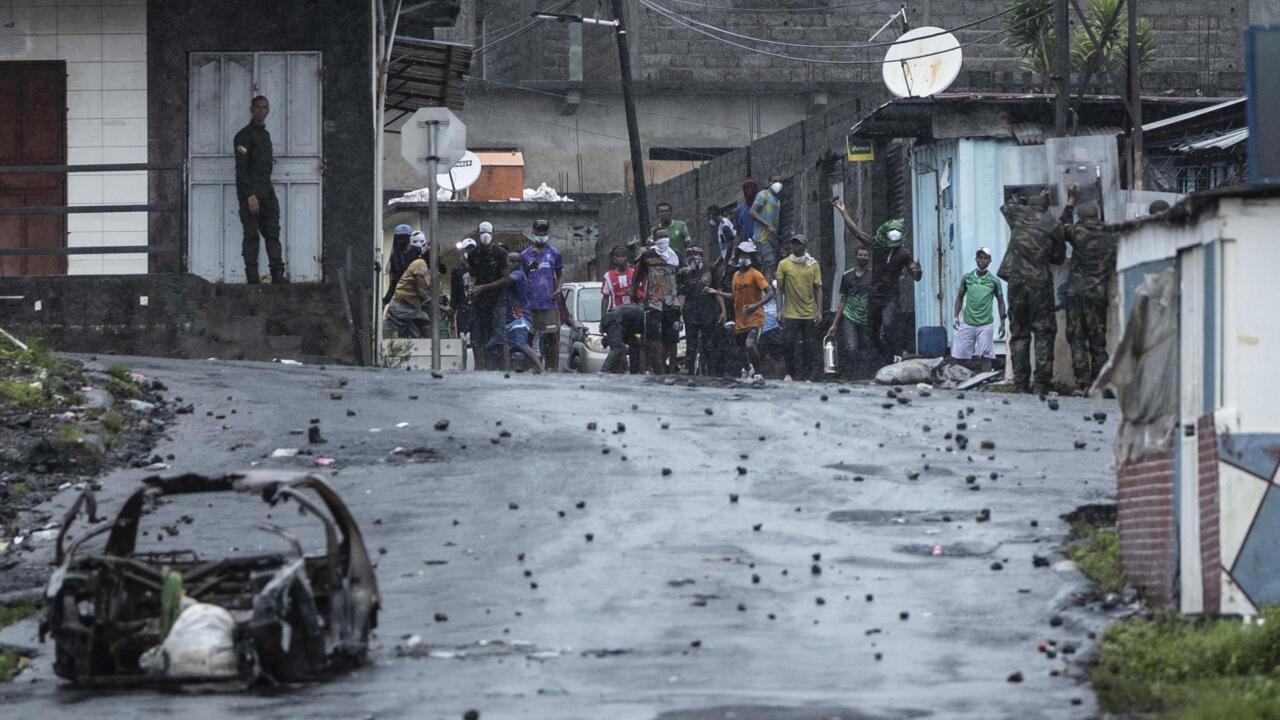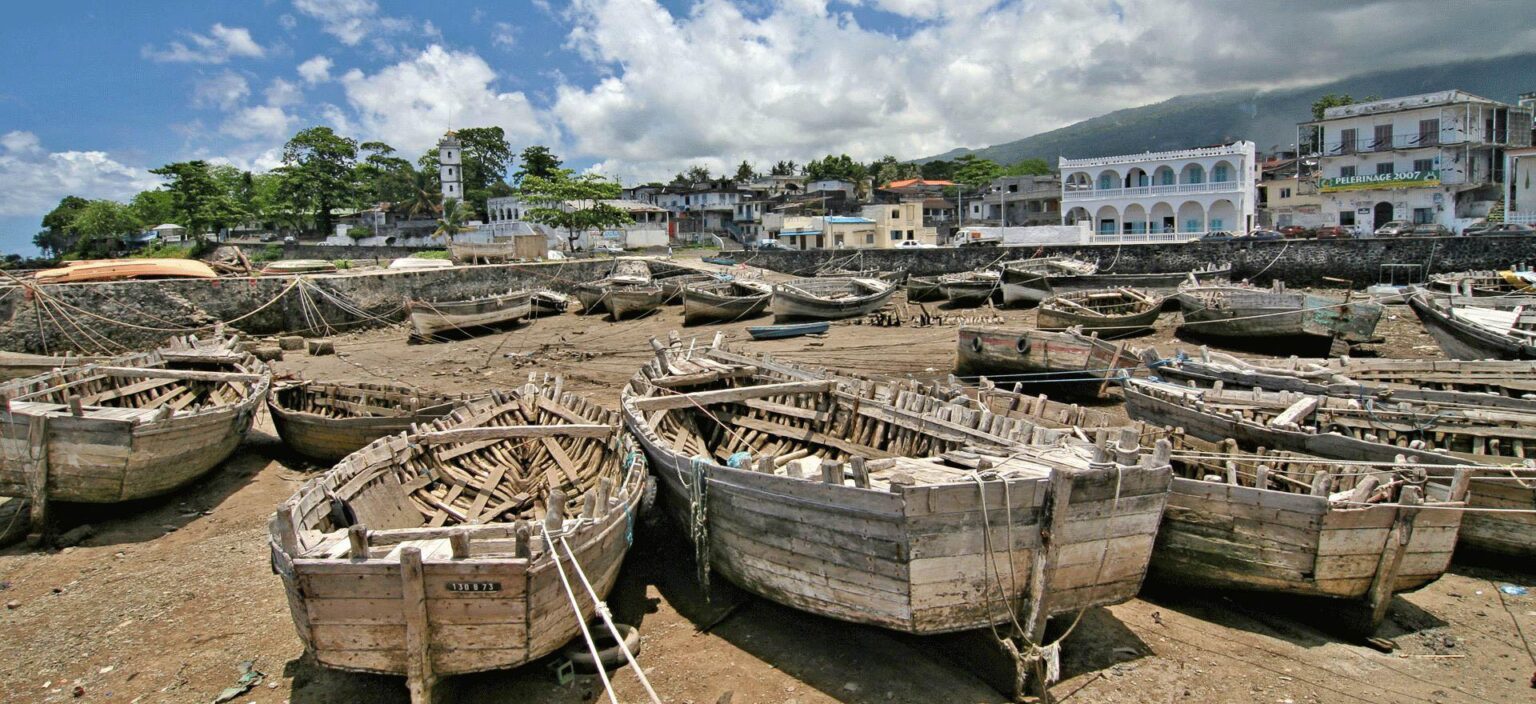In a nation already grappling with political unrest, the recent street protests in Comoros have escalated into violence, resulting in multiple fatalities.Citizens took to the streets in response to President Azali Assoumani’s controversial re-election, which many observers have labeled as fraught with irregularities.The protests, initially marked by calls for electoral transparency and democratic accountability, quickly devolved into clashes with security forces, raising alarm over the government’s handling of dissent. As tensions continue to mount, this article examines the implications of the unrest, the backdrop of Comoros’ political landscape, and the international community’s response to the unfolding crisis.
Comoros Protests Escalate Following Controversial Presidential vote
The unrest in Comoros has reached critical levels as demonstrators take to the streets in outrage over the recent presidential election results, which many are calling fraudulent. Tensions have escalated following widespread reports of vote-rigging and intimidation at the polls, leading to clashes between protesters and security forces. Witnesses described scenes of chaos in major urban centers,with people burning tires and chanting slogans against the government. Amidst the chaos, local organizations are documenting abuses, raising concerns about the implications for democracy in the archipelago nation.
In response to the mounting violence, the government has imposed a curfew and deployed security forces to quell the unrest. Public outcry continues to grow as opposition leaders call for an investigation into the election process. Key points of contention include:
- Allegations of voter intimidation and manipulation
- Arrest of dissenting voices prior to the election
- Claims of irregularities in election monitoring
With international observers expressing skepticism about the legitimacy of the election, the situation remains volatile. Activists fear that efforts to suppress dissent may lead to further escalations, as citizens demand accountability and transparency from their leadership.
Analyzing the Causes Behind the widespread Unrest in Comoros
The recent unrest in Comoros has been fueled by a variety of interconnected factors that highlight deep-seated political discontent among the populace. Key causes include:
- Disputed Election Results: The president’s re-election has been marred by allegations of fraud and manipulation, prompting widespread mistrust in the electoral process.
- Suppression of Dissent: The government’s heavy-handed approach to quelling protests has exacerbated tensions, with reports of police brutality and arbitrary arrests.
- socioeconomic Strain: Economic challenges, including high unemployment rates and inflation, have left many citizens struggling, further igniting frustrations against the ruling regime.
In an attempt to illustrate the severity of the situation, the following table summarizes key incidents leading to the escalation of protests:
| Date | Incident | Impact |
|---|---|---|
| July 2023 | Protests erupt after election results | Widespread demonstrations across major cities |
| August 2023 | Police clash with protesters | Increased injuries and arrests |
| September 2023 | internet shutdown imposed | Suppression of information and institution |
This sequence of events reflects a growing desire among the citizens of Comoros for accountability and reform, revealing an urgent need for a dialog between the government and its constituents to address these grievances comprehensively.
The Role of Government Response in Fueling Public Discontent
The recent unrest in Comoros reveals a deeper rift between the government and its citizens, exacerbated by perceptions of a disputed electoral process. As protests erupted following the president’s re-election, which many claim was marred by irregularities, the government’s response has been pivotal in escalating public tensions.Heavy-handed tactics, including police violence and arrests of key opposition figures, have further alienated the populace. This has created a volatile atmosphere, where frustration over economic hardships and a lack of obvious governance compounds the already existing discontent.
Moreover,the government’s interaction strategy has also played a critical role in fueling unrest. Citizens demanding accountability and reform have been met with dismissive rhetoric and a refusal to engage in dialogue. This lack of responsiveness has led to feelings of betrayal among the populace, deepening their resolve to protest. The situation is compounded by social media’s influential role in rallying public opinion and mobilizing demonstrators. As the government continues to impose strict measures against dissent,the cycle of discontent and confrontation seems poised to intensify,threatening the fragile stability within the island nation.
human Rights Implications of Recent Violence During Demonstrations
The recent surge of violence during demonstrations following the controversial re-election of the president raises notable human rights concerns within the Comoros. Reports indicate that the security forces have responded to protests with excessive force,resulting in casualties and injuries among civilian protesters. This situation underscores critical issues such as the right to peaceably assemble and to express dissent, which are fundamental components of international human rights law. Violations of these rights not only threaten the safety of individuals but also undermine the democratic processes that are essential for governance.
Moreover, the civilian government’s ability to manage dissent without resorting to violence reflects its commitment to upholding human rights. Observers have noted that the crackdown on protesters can lead to a chilling effect on freedom of expression,prompting individuals to hesitate in voicing their grievances or participating in future protests. In this context, it is vital for civic organizations and the international community to advocate for accountability and protection of human rights. Key issues to consider include:
- Ensuring Safety: Protection for peaceful protesters against violence from state forces.
- Increased Transparency: Clear communication from the government regarding its responses to demonstrations.
- Promotion of Dialogue: Encouraging negotiations between the government and civic groups to address grievances.
Path Forward: Recommendations for Peaceful Dialogue and Reform
The path toward restoring peace and stability in Comoros demands a commitment to constructive dialogue among all stakeholders.To facilitate this,it is indeed crucial to establish a mediating body involving civil society representatives,opposition leaders,and government officials. This body can help in fostering discussions aimed at addressing the grievances of the protestors while ensuring that a democratic process is upheld. Furthermore, international organizations, such as the African Union and the United Nations, should be invited to monitor these discussions to bolster transparency and credibility.
In addition to immediate dialogue, structural reforms are essential to prevent future conflicts. Key recommendations include:
- Electoral Reform: Establish an autonomous electoral commission to oversee future elections, ensuring their fairness and transparency.
- Public Safety Measures: Implement training for law enforcement on conflict resolution and social engagement to enhance public trust.
- Community Engagement Initiatives: Foster town hall meetings and public forums that allow citizens to voice concerns and contribute to decision-making processes.
By addressing both the immediate needs for dialogue and the long-term requirements for reform, Comoros can set a foundation for sustainable peace.
International Community’s Responsibility in Supporting Stability in Comoros
Considering the recent unrest following the contested re-election of the president in Comoros, the international community bears a significant responsibility to foster stability in the region. The situation has escalated, resulting in dangerous street protests that have claimed lives and increased tensions among the populace. To ensure peace and support democratic processes,the global community can take several decisive actions:
- Diplomatic Engagement: establishing open lines of communication with all political factions can mitigate further violence.
- Humanitarian Assistance: providing aid to those affected by the turmoil, particularly the injured and displaced, is crucial for immediate relief.
- Monitoring Human Rights: International observers should be deployed to ensure adherence to human rights standards and prevent abuses.
- Encouraging Dialogue: Facilitating inclusive dialogues amongst all stakeholders to address grievances and foster a sustainable resolution.
Moreover, a coordinated international response is essential to reinforce democratic governance in Comoros. This can be achieved thru targeted sanctions and incentives aimed at promoting adherence to electoral integrity. A structured support system allowing for independent electoral monitoring could be established, alongside collaborative efforts driven by regional organizations such as the African Union. The table below outlines potential measures for collaboration:
| Measure | Description | Responsibility |
|---|---|---|
| Electoral Monitoring | Deploying observers during elections to ensure transparency. | International NGOs and local civil society |
| Emergency Aid | Providing health and humanitarian assistance to affected populations. | UN and humanitarian agencies |
| Political Mediation | engaging in dialogue facilitation with all political groups. | Regional bodies and peace organizations |
Insights and Conclusions
As tensions continue to rise in Comoros following the re-election of President Azali assoumani, the violent clashes between protesters and security forces underscore the deep divisions within the nation. the tragic loss of life during these demonstrations highlights the urgent need for dialogue and reconciliation among Comoros’ political factions. As the international community watches closely, the future of Comoros hangs in the balance, with calls for accountability and respect for democratic processes gaining momentum. Moving forward, it is crucial for all stakeholders to prioritize peaceful solutions and uphold the rights of citizens to voice their dissent without fear of retribution. The path ahead remains uncertain, but the resilience of the Comorian people in their pursuit of justice and equality is unmistakable.

